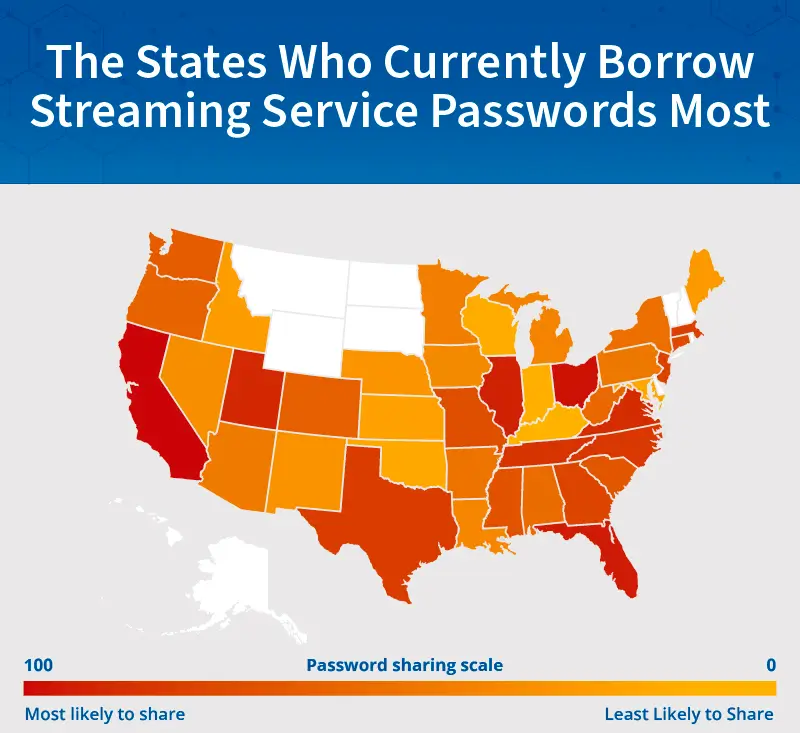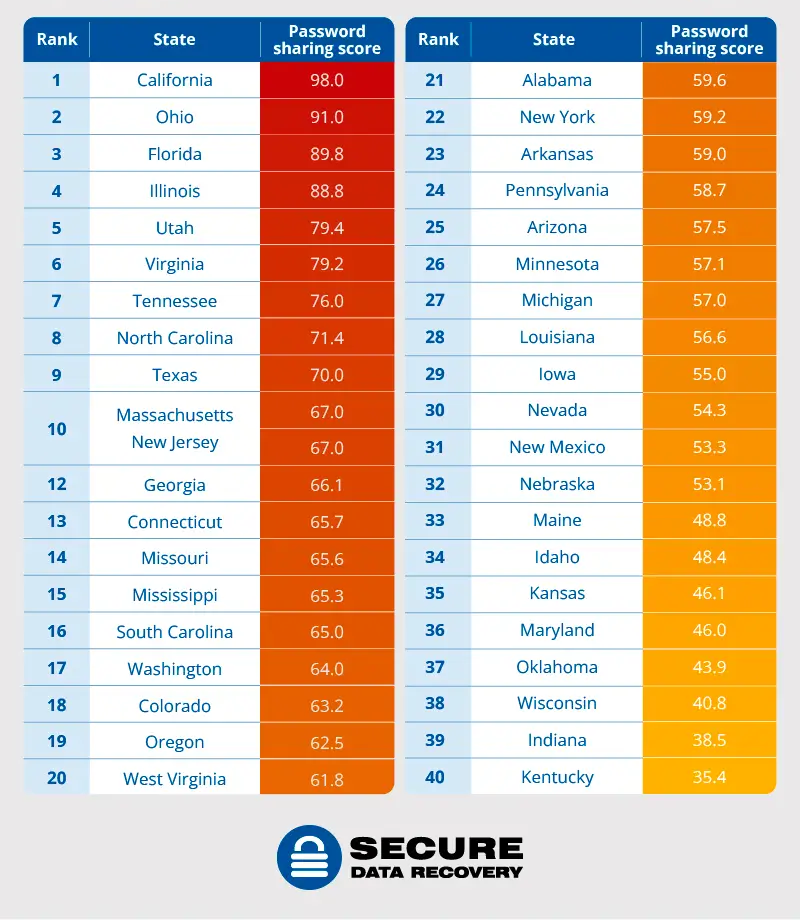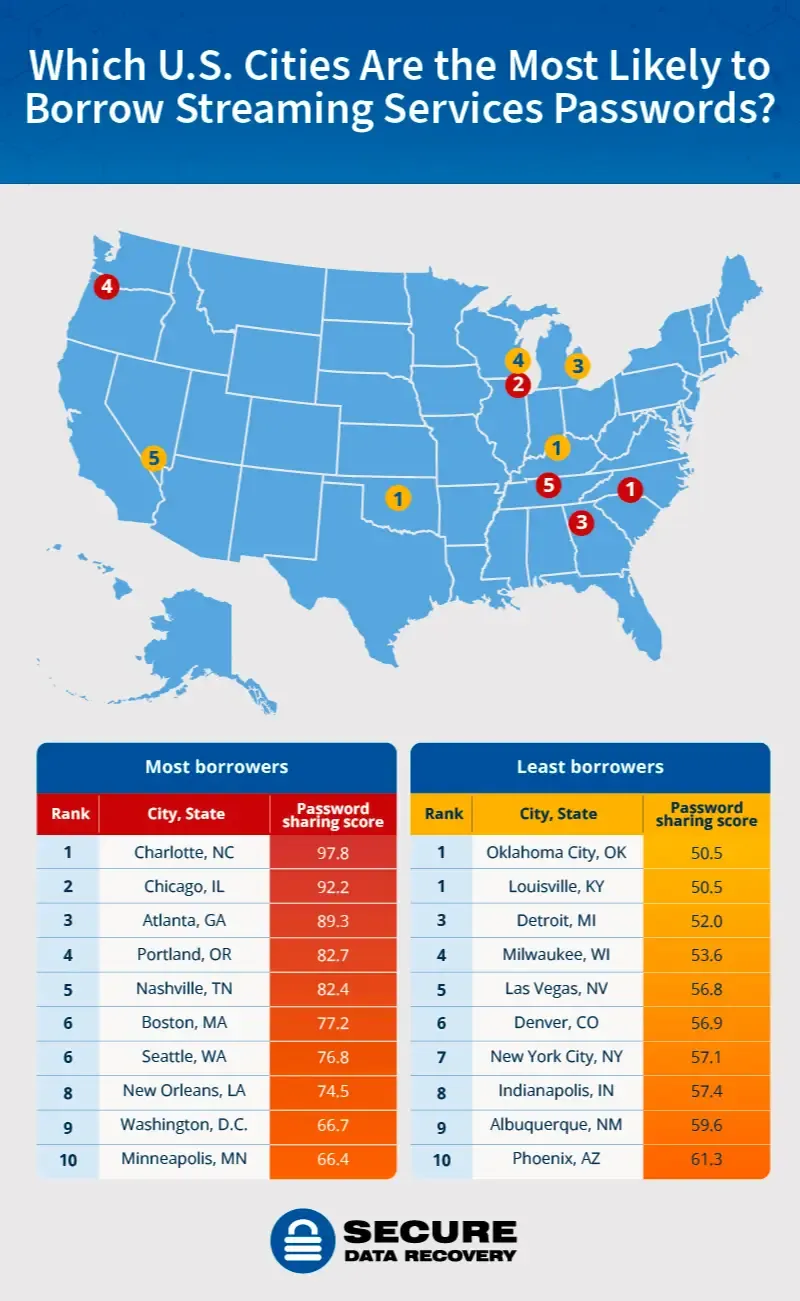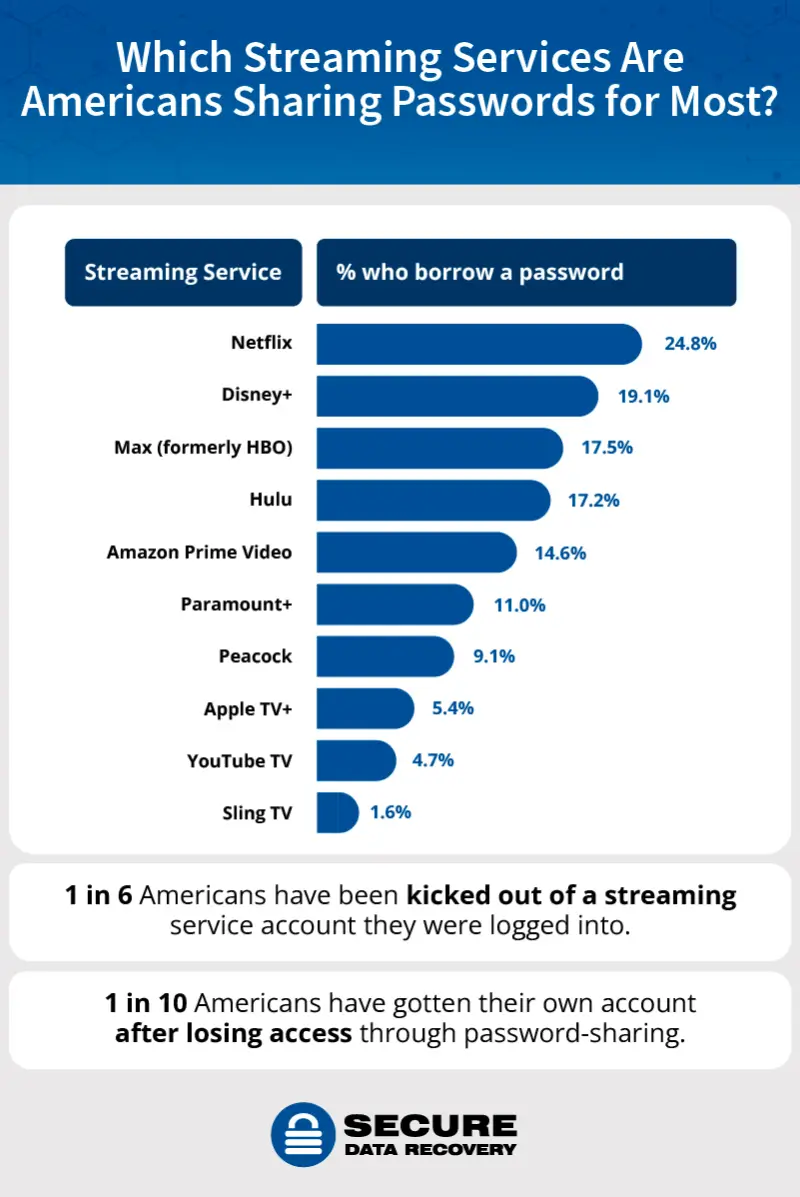With the abundance of streaming services out there, it can be a headache to keep up with your favorite shows. Sometimes they’re available on one platform for a while, only to disappear and resurface on another. And if you like a lot of different shows, you might find them spread out across several different platforms—each requiring its own unique subscription for access.
We’ve all given out or borrowed a password from a friend to catch a must-watch show or highly anticipated premiere. But have you ever thought about password sharing as stealing?
Well, if you haven’t, you’re not alone—80% of Americans don’t think it’s stealing, according to a Secure Data study. And of all viewers, 69% have shared login information with friends or family and used someone else’s account to stream, and Netflix, Disney+, and Hulu passwords are getting shared around the most.
Streaming services, however, aren’t fans of password sharing, and they’re taking more and more measures to crack down on the practice. So, is it okay to share our passwords and stick it to the corporate machine, or are we basically committing grand theft TV? Let’s dive in!
When we’re forced to fork over the cash, what do we want in a service? Nearly 2 in 5 Americans say no ads, and they’re willing to pay extra to not have to sit through commercials.
But it’s hard to say if most Americans find value in paying for streaming services at all. If a password crackdown took place across all services, viewers say they’d be most likely to give up Netflix, Hulu, and Disney+ for good. Nearly 1 in 10 Americans have canceled their accounts after restrictions on password sharing—though the same amount just opened their own accounts after they lost access, so it can go either way.
Password sharers usually have some kind of rules or agreement for how to use the account. For example, 36% have a rule in place for extra users to only use the guest account, not their main one. Additionally, 24% require password borrowers to ask before logging on.
Most people share passwords to help friends and loved ones out. Having access to the same movies and TV shows also means more shared experiences through watching together. Still, it’s important to keep in mind that there are risks to letting your password circulate, especially if it falls into untrustworthy hands.
Read next: Businesses Need to Bridge the “AI Gap” Now to Demonstrate Benefits to Customers
We’ve all given out or borrowed a password from a friend to catch a must-watch show or highly anticipated premiere. But have you ever thought about password sharing as stealing?
Well, if you haven’t, you’re not alone—80% of Americans don’t think it’s stealing, according to a Secure Data study. And of all viewers, 69% have shared login information with friends or family and used someone else’s account to stream, and Netflix, Disney+, and Hulu passwords are getting shared around the most.
Streaming services, however, aren’t fans of password sharing, and they’re taking more and more measures to crack down on the practice. So, is it okay to share our passwords and stick it to the corporate machine, or are we basically committing grand theft TV? Let’s dive in!
What Americans are paying for
When you get down to it, we share streaming service passwords to cut down on costs. Most of us don’t want to pay for one service, let alone the dozen or so it takes to get access to all of our favorite TV shows. And with new services cropping up all the time, it seems harder and harder to actually get what you want for a reasonable cost.When we’re forced to fork over the cash, what do we want in a service? Nearly 2 in 5 Americans say no ads, and they’re willing to pay extra to not have to sit through commercials.
But it’s hard to say if most Americans find value in paying for streaming services at all. If a password crackdown took place across all services, viewers say they’d be most likely to give up Netflix, Hulu, and Disney+ for good. Nearly 1 in 10 Americans have canceled their accounts after restrictions on password sharing—though the same amount just opened their own accounts after they lost access, so it can go either way.
Sharing isn’t all fun and games
It’s pretty normal to have a family streaming account—with different profiles, of course, so the kids can watch cartoons without accidentally losing Dad’s place in Friday Night Lights. But family members aren’t the only ones password sharing: 1 in 3 people share with their partner, while 1 in 4 viewers share with friends.Password sharers usually have some kind of rules or agreement for how to use the account. For example, 36% have a rule in place for extra users to only use the guest account, not their main one. Additionally, 24% require password borrowers to ask before logging on.
Most people share passwords to help friends and loved ones out. Having access to the same movies and TV shows also means more shared experiences through watching together. Still, it’s important to keep in mind that there are risks to letting your password circulate, especially if it falls into untrustworthy hands.
To Share or Not to Share?
As companies crack down on password sharing, spreading the TV love might be more trouble than it’s worth since it’s technically against the terms of service. In addition to making Netflix mad, you’re also putting your own data privacy at risk every time you share, especially if you use the same password across multiple sites. So, while sharing is caring in most contexts, when it comes to your streaming password, it might be best to keep it to yourself.Read next: Businesses Need to Bridge the “AI Gap” Now to Demonstrate Benefits to Customers




